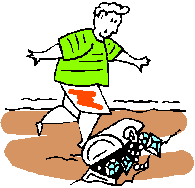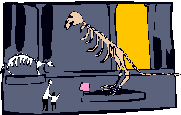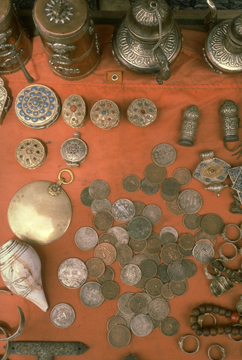





|
Kids as Collectors Where Treasure Hunters Create Mini Museums by Kristen L. Burke |
OUTLINE
Students
This unit is designed for students that are in a grade level that requires them to sort, classify, categorize and identify a group of items. Additionally students will participate in speaking and writing applications through brief descriptive presentations using sensory details. Students will be asked to seek out, identify and describe objects related to nature and their special interests. Through the use of the internet, student discoveries can expand into treasures found with their state, country and world, and further into discoveries of outer space.
The students that worked on this unit were third graders ranging from 8 years old to 10 years old. These students were from several different ethnic and economic backgrounds; such as Filipino, Mexican, American, low income families and working class families. GATE (gifted students) as well as resource students were involved in his project.
Major Goals
Timelines
This unit can be done as a mini-unit in a month.
The active collecting quest is an ongoing activity where a finite time for collecting natural objects can be set for as little as a week or as long as a trimester.
After Lesson One, a week long activity, each lesson is designed to take one to two class periods. A one day field trip to a local museum is recommended. A parent night, "open house," is an excellent opportunity for the culminating event where the students display their mini museums.
Where the number of actual class periods used is minimal, class time is needed however for the students to complete the work. They need to have time to update their field logs, do research, and explore on line museum tours.
Assessments
Rubrics have been created for: Shoe Box Decoration, Collector's Field Log, Vocabulary Treasure Hunt, Teacher Observation, Mini Museum Display and Descriptive Presentation, and a Vocabulary Quiz.
Standards
Systematic Vocabulary Development: - Demonstrate importance of relations, -use sentence and word context clues to fine unknown word meanings, -use a dictionary to learn meanings and other features of unknown words.
Visual Arts: -Identify and describe objects of art from different parts of the world observed in visits to a museum or gallery.
Writing Applications: -Write compositions that describe and explain familiar objects, events and experiences. -Write descriptions that use concrete sensory details to present and support unified impressions of people places things or experiences.
Listening and Speaking: -Organizing and delivering oral communication, -brief narrative presentation, -descriptive presentation.
Unit Vocabulary
| antique | discover | junk | precious |
| artifact | discriminate (sort by criteria) | label (n. v.) | precious metal |
| attributes | display | log | precious stone |
| categorize | document (n. v) | manmade |
record (n. v.) |
| category | features | map (v, n) | rock |
| characteristics | floor plan | material | sort |
| classify | fossil | metal | texture |
| collect | gather | museum | treasure |
| collection | heirloom | natural | unique |
| criteria | illustrate | nature | valuable |
| curator | item | object | |
| decorate | journal | organize | |
| define |
Unit Vocabulary By Lesson
| Lesson 1 | Lessons 2 and 3 | Lesson 4 | |||
| artifact | journal (n. v.) | attributes | junk | antique | museum |
| collect | label (n. v.) | categorize | manmade | curator | precious |
| collection | log | category | material | display | precious metal |
| decorate | natural | characteristics | metal | floor plan | precious stone |
| discover | nature | classify | organize | map (v, n) | |
| document (n. v) | object | criteria | sort | ||
| features | record (n. v.) | define | texture | ||
| gather | rock | discriminate (sort by criteria) | unique | ||
| illustrate | treasure | fossil | valuable | ||
| item | heirloom | ||||
|
|
|
|
|
|
|
 |
|
 |
 |
|
 |
Email-Kristen Burke